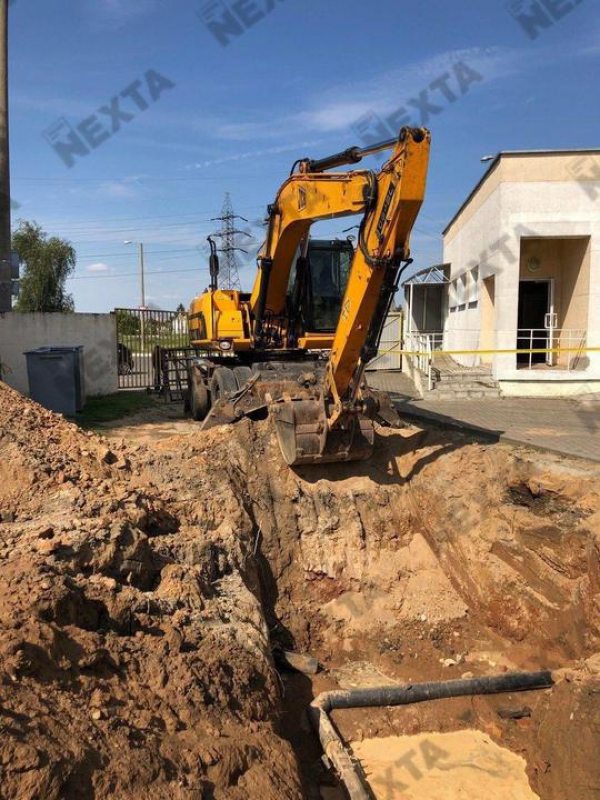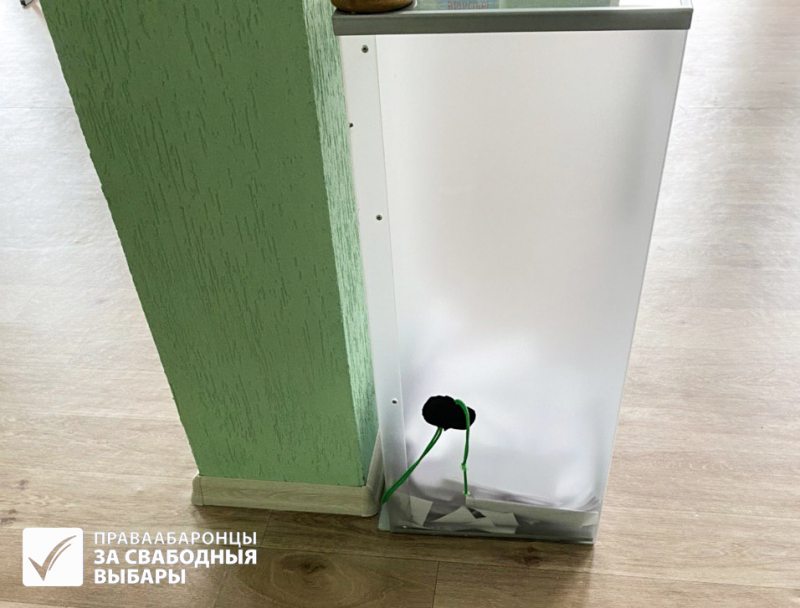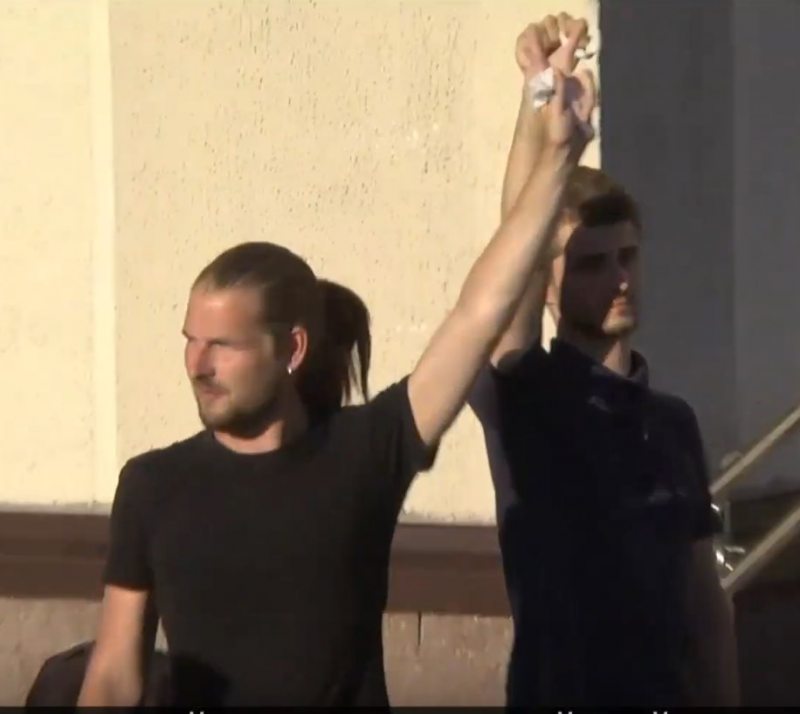Picks of the week
10 days in prison each. This is the price of freedom of expression for two DJs who played a blacklisted song at an official event in Minsk. Kiryl Halanau and Uladzimir Sakalouski are employees of the Palace of Youth, a government-owned center for extracurricular activities, which organized a last-minute concert in the city’s Kiev Park in an apparent attempt to prevent Sviatlana Tsikhanouskaya from campaigning in the venue, one of the few authorized locations in the 2-million-strong capital.
“Peremen” (“Change”) by the Russian rock band Kino is not officially banned, but is widely regarded as a protest song in post-Soviet countries. Halanau and Sakalouski also say the act will cost them their jobs.
Both were repeatedly beaten by riot police before standing trials today.
The official event was attended by thousands of Tsikhanouskaya’s supporters who were not allowed to peacefully gather in Minsk, after all the legal campaigning sites appeared to be occupied by government activities, including a festival marking the Railroad Troops Day. Other candidates could not campaign after venues in various parts of Belarus were unavailable due to “emergency repairs”, e.g. resurfacing or water supply maintenance.

- An excavator doing "emergency repairs" outside the Stroitel Stadium in Salihorsk, the only legal campaigning venue in the city. The repairs were started before the arrival of presidential candidate Sviatlana Tsikhanouskaya. Photo: Nexta
Uladzimir Labkovich, coordinator of “Human Rights Defenders for Free Elections”, says the bans on legal campaigning events effectively ended the alternative candidates’ presidential campaigns.
“This is direct interference with election campaigning,” Labkovich said.
The domestic observers stress that any attempts to appeal against the bans are futile, as only two days are left before Election Day, August 9.
Meanwhile, early voting turnout has hit an all-time record, after nearly 23% of voters reportedly came to the polls in the first three days of this electoral phase, which has always been a target for criticism by both national and international observation missions.
The few independent observers who were allowed to monitor early voting say the high turnout is the result of nation-wide tampering with the figures.
Many observers are not let inside the polling stations but can estimate voter turnout by counting those who come to the polls. Some of the monitors argue the official daily results are sometimes two or three times higher than what they saw with their own eyes.
The turnout is overstated even at polling stations with translucent ballot boxes, where everyone can see the approximate number of ballots in the box, e.g. at polling station No. 6 in the Baraŭliany suburb of Minsk.

- A ballot box at polling station No. 6 in Baraŭliany, near Minsk, which was attended by only 25 voters in two days, according to a non-partisan observer
During the week, two observers of “Human Rights Defenders for Free Elections” were stripped of their accreditations.
Anastasiya Hirkouskaya was not allowed to observe at polling station No. 9 in Asipovičy and had to stay outside. As a result, her accreditation was annulled after she “repeatedly entered the polling premises” and “protested the conditions of her stay outside the polling station”.
Liudmila Laptsevich was expelled from polling station No. 37 in Mahilioŭ after she witnessed rigged voter turnout. The observer says only 90 voters came to vote in the first two days of early voting, while the election officials said they issued 513 ballots.


